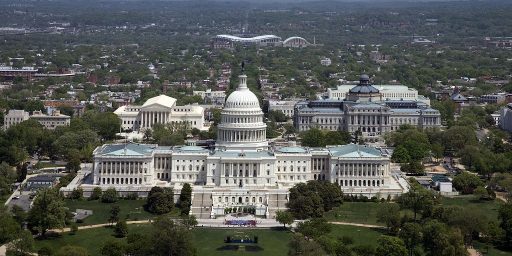CRIMINOMICS
Matthew Yglesias has this excerpt from an actual scholarly book on dropping crime rates:
When committing crime, the agent’s efforts are subject to diminishing returns, which arise because moral hazard prevents criminals from reaping the benefits of specialization and division of labor that are available to other sectors of the economy. This is essentially a problem of poorly defined property rights. In an environment that lacks legal recourse for disputes, criminals face limits on how much hired help they can profitably employ. The possibility of employee theft, the costliness of extralegal means of preventing it, and the possibility that an employee might provide incriminating evidence to authorities, all limit the size of criminal “firms” and with it criminals’ ability to achieve the scale economies available to legal enterprise.
With all those obstacles, it’s a wonder that drug kingpins can afford a decent car, let alone any bling bling.






blah blah blah snipped … The possibility of employee theft, the costliness of extralegal means of preventing it, … snipped blah blah blah
Throughout the whole piece but especially in this line, the “scholar” misses the obvious fact that “Bullets is cheap.”
P
Ummm, how about the Mafia and other organized crime?
1) Sharply defined property rights
2) ‘legal’ recourse for disputes (legal in the sense that they are accepted and supported in that group)
3) Employee theft and employee incrimination handled as noted by Paul
4) Large organizations; many mulit-national
Heck, even in li’l ol’ South Bend, the gangs have “sharply defined property rights”, and etc.
—